Insulation Tips
Does Wall Insulation Really Make a Difference?
Is wall insulation worth it?
Wall insulation will improve your home’s energy efficiency, and make your indoor temperatures more comfortable year round. It can also reduce noise transfer, improve moisture control and cut down your carbon footprint. If you’re building a home, wall insulation is essential. You may even be required to meet certain insulation standards according to local building regulations. If you’re renovating an older home, consider insulating your existing walls. It can be tricky to insulate wall cavities once they’re sealed up, so now is the best time to do it. Learn more: Retrofit wall insulation for existing homes.Does wall insulation work?
Absolutely. Wall insulation prevents your home from heating up in summer and keeps your home warmer in winter. Around 15-20% of a home’s heat loss and gain occurs through the walls. Without adequate insulation in your walls, heat would pass in and out of your wall material without much resistance. But proper insulation acts like a thermos for your house, keeping the inside warm in winter and cold in summer. Of course, some insulation products are more effective than others at preventing heat loss and gain. The most important factor to look at is the R-Value. The higher the R-Value, the better the product is at preventing the transfer of heat. Also read: How does insulation work?Will adding wall insulation save me money?
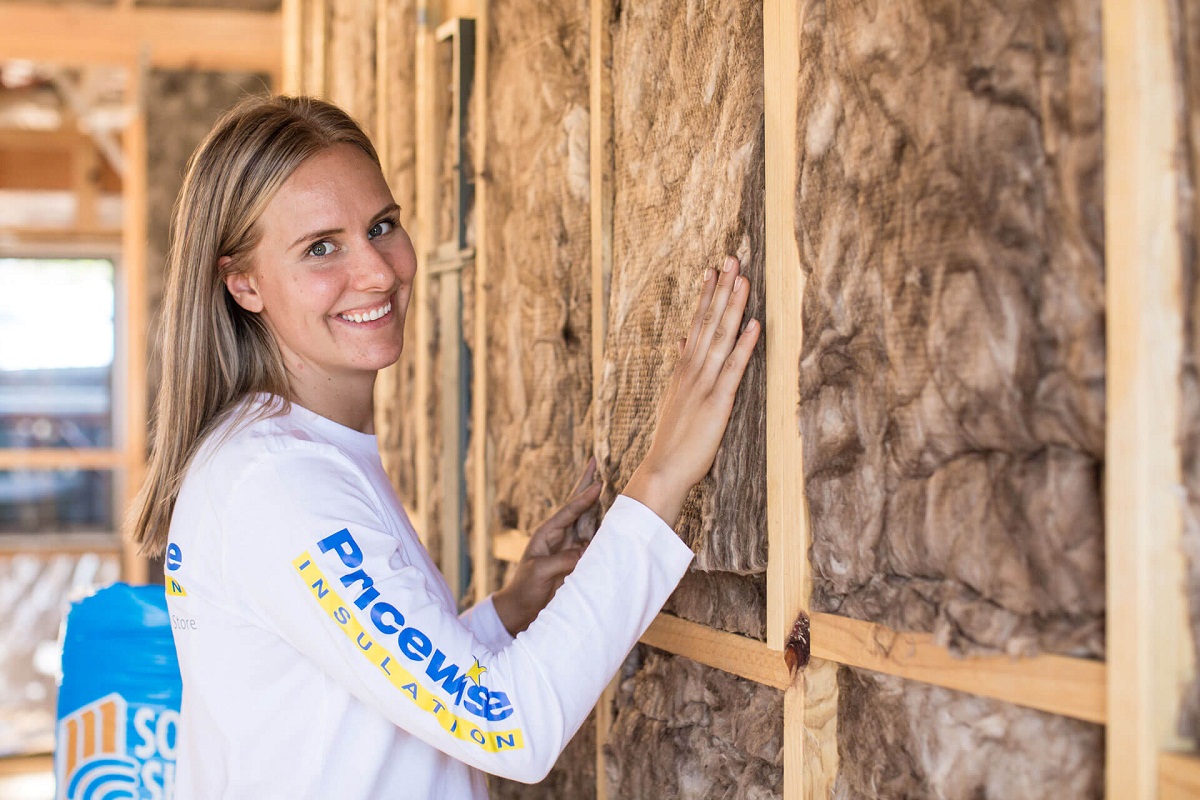 Insulation is one of the most effective ways to reduce your home’s energy consumption. According to Sustainability Victoria, you could reduce your energy bill by up to 40% by installing ceiling and wall insulation.
Houses with good insulation are much better at regulating indoor temperatures passively. That means you won’t need to rely as much on your air conditioner or heater to keep your rooms comfortable all year round. When you do switch on your heating and cooling devices, they’ll work more efficiently and use less power when you have insulation in the walls, ceiling and floors.
Find out more: How insulating your home will save you money.
Insulation is one of the most effective ways to reduce your home’s energy consumption. According to Sustainability Victoria, you could reduce your energy bill by up to 40% by installing ceiling and wall insulation.
Houses with good insulation are much better at regulating indoor temperatures passively. That means you won’t need to rely as much on your air conditioner or heater to keep your rooms comfortable all year round. When you do switch on your heating and cooling devices, they’ll work more efficiently and use less power when you have insulation in the walls, ceiling and floors.
Find out more: How insulating your home will save you money.
How much does wall insulation cost?
Wall insulation can vary in price, depending on what type of insulation you use, what R-Value your products are rated and how accessible your wall cavities are. The table below shows a rough pricing guide for wall insulation:| PRODUCT | COST ESTIMATE |
| Permeable wall wrap | $2 – $5 per m2 |
| Reflective foil wrap | $1 – $12 per m2 |
| Glasswool wall insulation | $4 – $20 per m2 |
| Polyester wall insulation | $9 – $15 per m2 |
| Acoustic wall insulation | $9 – $20 per m2 |
Is it a good idea to insulate interior walls?
We highly recommend insulating your interior walls – there are many benefits to doing so.Thermal benefits
Interior wall insulation will improve energy efficiency in your home by preventing heat transfer between rooms. That means if your front room gets really hot from the sun in summer, it’s less likely to impact the adjoining rooms. Interior wall insulation also allows you to create climate zones in your home. So if you’ve got your heater on in one room, interior wall insulation will prevent the warm air from escaping to other rooms. This makes heating and cooling much more efficient.Acoustic benefits
Beyond the thermal benefits, interior wall insulation also provides acoustic benefits by reducing the transfer of sound between rooms. Installing any type of internal wall insulation will help reduce noise travelling from room to room. However, you can install specially designed acoustic insulation such as Bradford SoundScreen Insulation or Earthwool Sound Shield Insulation which are very effective at reducing sound transfer. Specialised acoustic insulation products are thicker and more dense than regular thermal insulation, and can reduce noise levels by up to 75%. It’s the best way to keep your bedrooms quiet, create a private office space or contain the noise from your home theatre. Find out more: What is sound insulation and does it work?Does wall insulation cause moisture problems?
Wall insulation doesn’t cause moisture problems, but it needs to be installed correctly with adequate ventilation to prevent issues. Choosing high quality insulation for your external and internal walls can offer better moisture control to prevent rot, mould and mildew. These problems can be a potential health risk, and will drastically reduce the durability of your insulation. It’s wise to choose insulation such as Knauf Earthwool that has non-hygroscopic properties, meaning it will not easily take up moisture from the atmosphere, and won’t rot or encourage the growth of mould or bacteria. Also read: How to control condensation using wall insulation.How to get more out of your wall insulation investment
Follow these tips to make sure you get the best return for your investment:- Use the right R-Value for your climate – cooler climates like Sydney and Melbourne should use minimum R2.5 in the walls. Warmer climates like Perth and Brisbane should use at least R2.0 in the walls.
- Upgrade to a higher R-Value – the higher the R-Value, the more insulating power the product has, and the more potential savings you can make.
- Choose quality insulation products from reputable brands – check out our guide to choosing the right wall insulation for advice.
- Follow proper DIY wall installation practices – or use a professional installation service to ensure the highest quality installation.
- Choose insulation with non-hygroscopic properties, such as Knauf Earthwool, to minimise the risk of rot, mould and bacteria growth.
What type of insulation is best for walls?
The type of internal wall insulation you choose will depend on your specific needs. Just remember the higher the R value, the more effective its thermal properties will be. The best insulation will also have sound reducing, moisture resistant and non-flammable properties. Our top sellers for exterior walls include:- Knauf Earthwool Wall Insulation Batts
- Pink Batts Thermal Glasswool Wall Insulation
- Bradford Polymax Wall Insulation Batts
- Bradford Gold Batts Hi-Performance Wall Insulation
- Knauf Earthwool Sound Shield Wall Insulation Batts
- Bradford SoundScreen Acoustic Insulation Batts
- Pink Batts Glasswool Acoustic Wall Insulation
- James HardieFire Rockwool Insulation

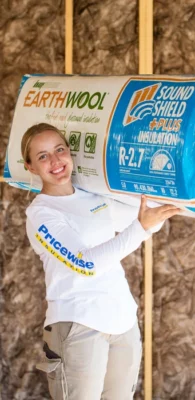
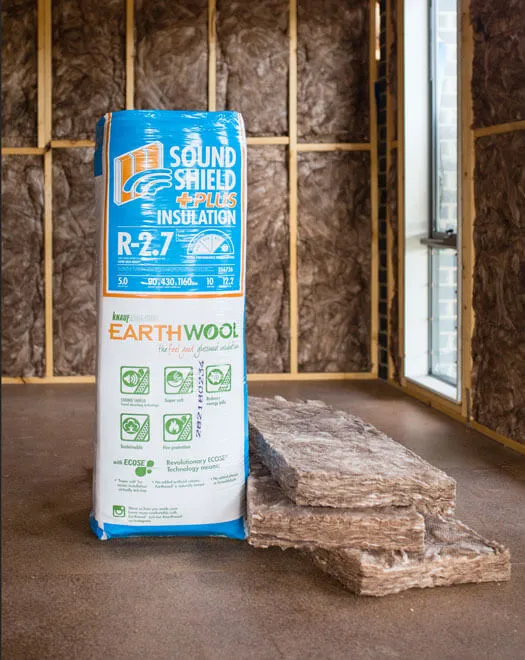
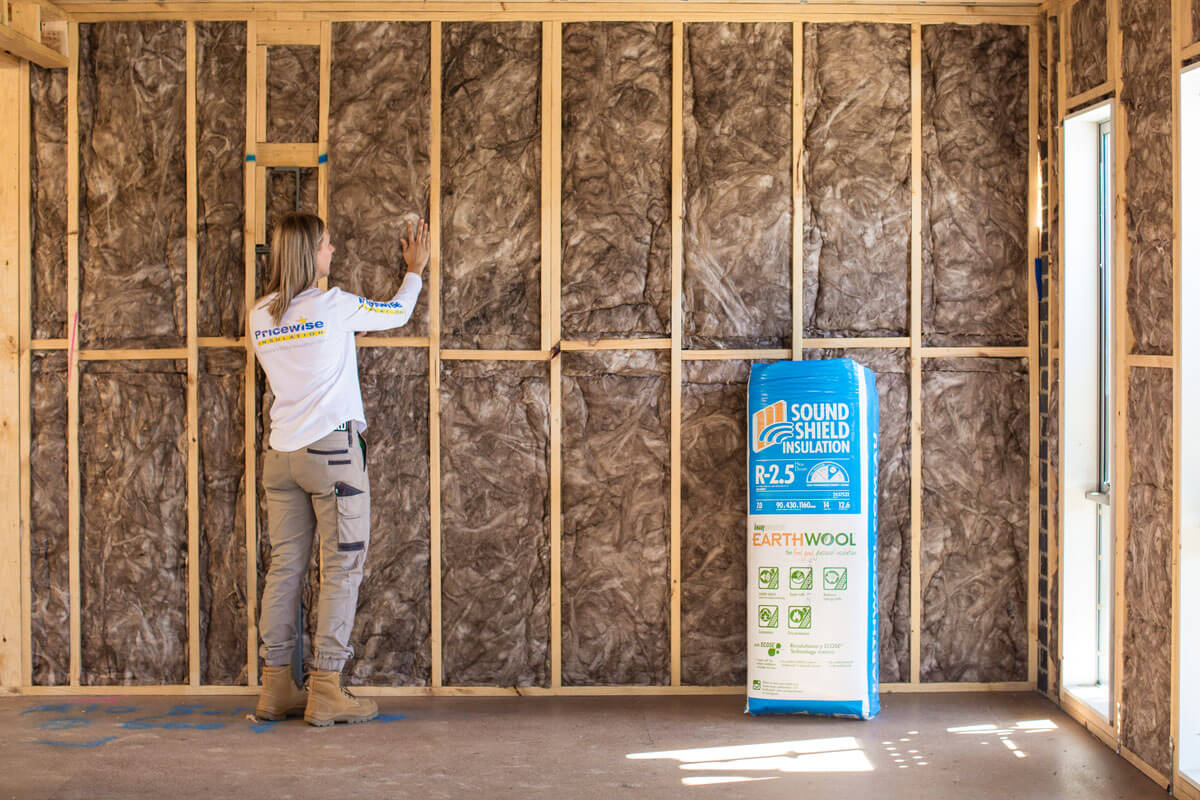
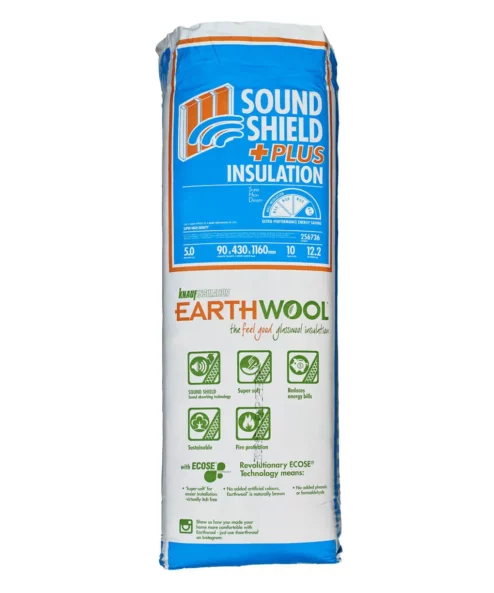
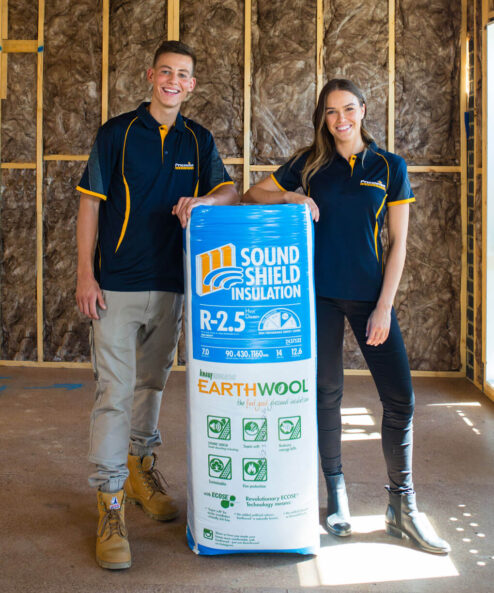
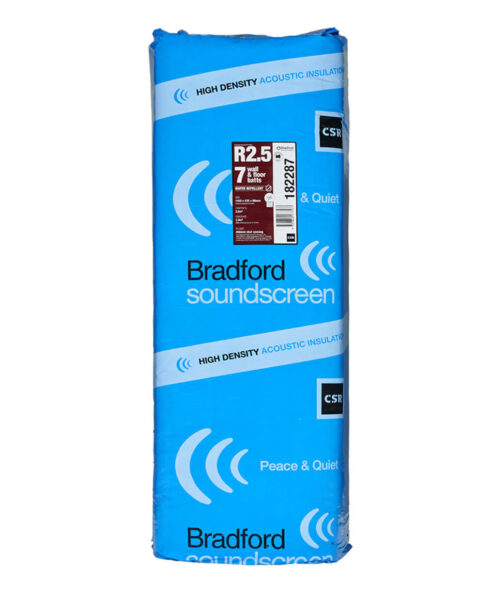
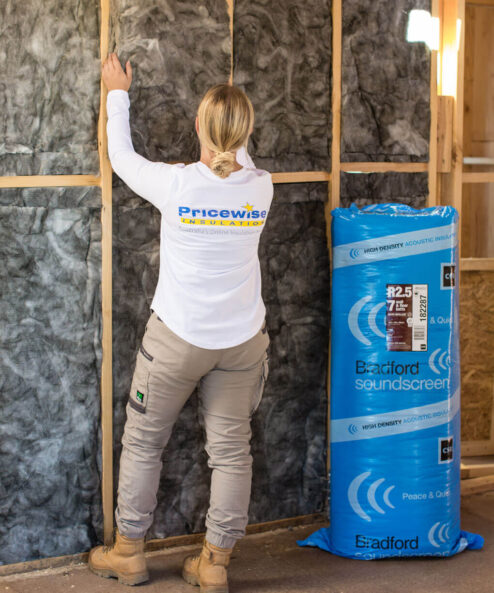
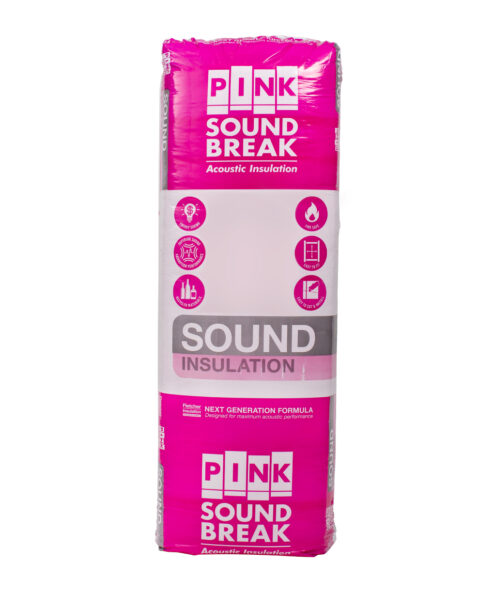
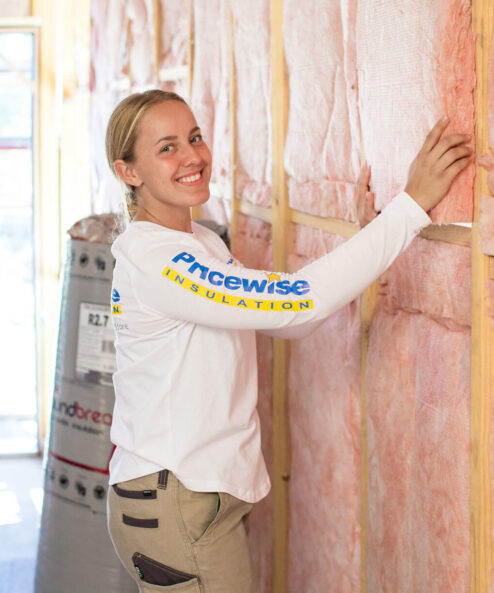
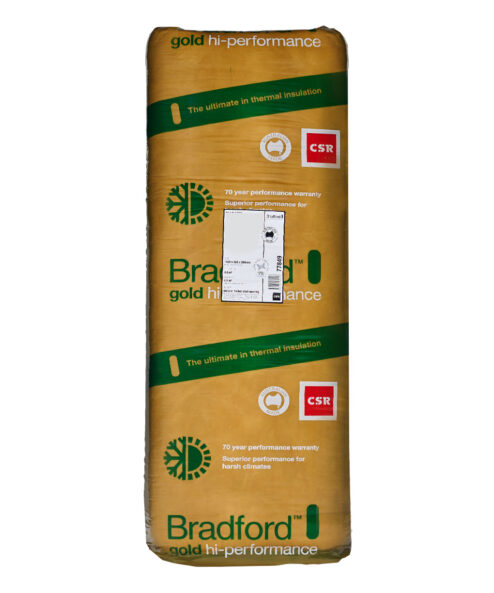
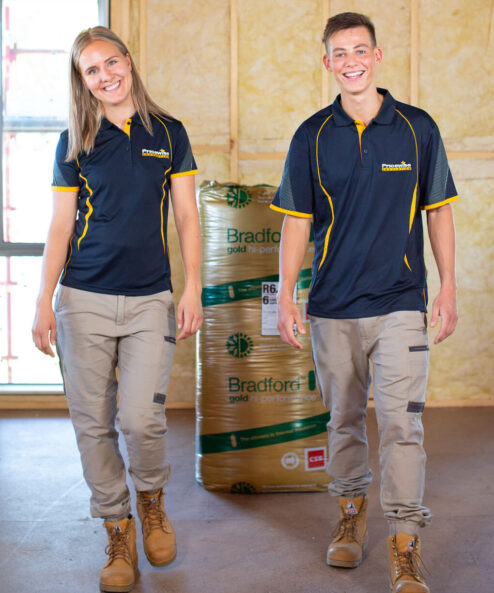
Had a CVP leak don’t believe wall insulation was replaced as cold air coming through west wall. How can I check?
Hi Derrill,
The best way to check if a wall cavity contains insulation is with a thermal camera. You can also try tapping or knocking on the plasterboard with your hand. If the wall sounds hollow, then it’s quite possible that it doesn’t contain insulation.
Cheers,
Christa